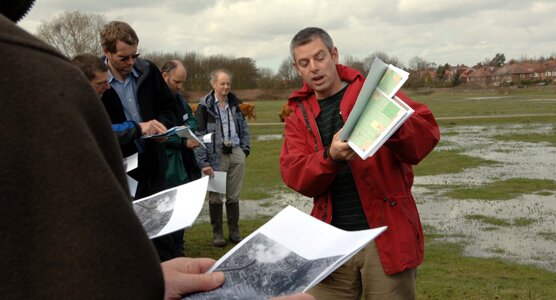Training

Use this section of the HELM website to improve your knowledge, obtain technical advice or find training activities near you.
HELM Training Programme 2011
HELM offers training for councillors and officers in local authorities and government agencies. Seminars aim to identify the resources available to non-heritage professionals and to demonstrate how the benefits of the historic environment can help to achieve targets. Expert speakers explore regional priorities using local case studies. The HELM Training Programme 2011 lists all of the available HELM courses. >>
English Heritage Courses
English Heritage provides a range of courses, usually delivered in partnership with other organisations at both national and regional levels. Professional Training in the Historic Environment short courses are offered in partnership with Oxford University Department for Continuing Education (OUDCE). Intended for historic environment practitioners, these courses are designed by English Heritage and OUDCE, in association with the Archaeology Training Forum (ATF), the Institute of Historic Building Conservation (IHBC) and the Institute for Archaeologists (IfA). >>
Related Courses
Historic environment training is available in a variety of formats to suit your needs. Courses are provided by a range of organisations including universities, professional institutions, the Workers Education Association and amenity societies. >>
Craft Skills
There is a shortage of practitioners skilled in the traditional crafts necessary to conserve and restore our historic buildings. The National Heritage Training Group (NHTG) is responsible for implementing a coherent strategy for training and skills provision in this sector. >>
What's New?
-
Britain was the world’s first industrial nation and has a wealth of industrial heritage but many industrial sites have been lost or are at risk due to functional redundancy. English Heritage's survey has shown that the percentage of listed industrial buildings at risk is three times greater than the national average for listed buildings at risk.
-
The value of a well managed, protected and appreciated historic environment to both our quality of life and to the economy is well established. Heritage tourism contributes £20.6 billion to GDP a year whilst research shows that 93% of people think that in improving their local place it is important to save heritage assets.
